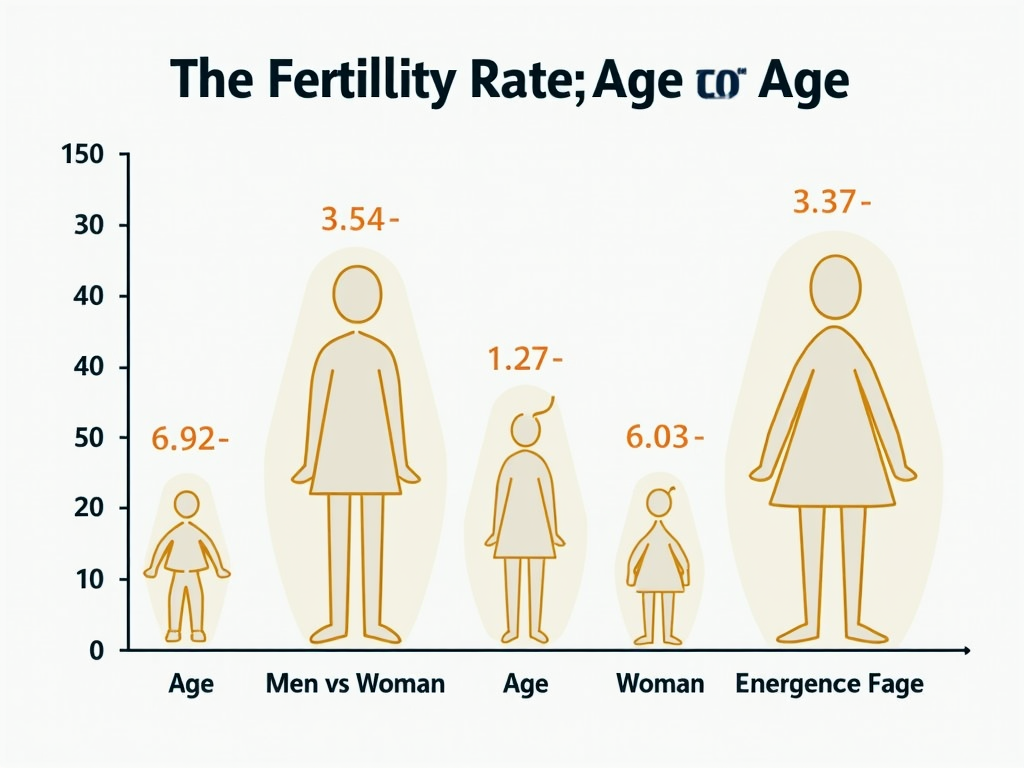Finding Support During Infertility: A Comprehensive Guide
March 26, 2025, 1:36 p.m.
Infertility is a challenging journey that affects many couples and individuals worldwide. It's a path filled with emotional ups and downs, medical decisions, and often, a sense of isolation. However, finding support can make a significant difference. Whether it's emotional support from loved ones, medical guidance from fertility specialists, or connecting with others who understand your experience, support is crucial. This article explores various aspects of infertility, including understanding its causes, navigating the emotional landscape, and discovering available treatments and resources.
Understanding Infertility
Infertility is defined as the inability to conceive after one year of unprotected intercourse for couples under 35, or after six months for those over 35. It affects approximately 10-15% of couples globally. Infertility can stem from various factors, including hormonal imbalances, structural issues, or genetic conditions, and it can affect both men and women.
In men, infertility often results from issues such as low sperm count, poor sperm motility, or blockages in the reproductive tract. Understanding male infertility is crucial, as it accounts for about 40-50% of all infertility cases. Treatments for male infertility may include lifestyle changes, medications, or surgical interventions. For more detailed information, refer to "Understanding Male Infertility: Causes and Treatments."
Women may experience infertility due to ovulation disorders, fallopian tube blockages, or uterine abnormalities. Age is also a significant factor, as fertility naturally declines with age, particularly after 35. However, there are fertility preservation options for women over 35, such as egg freezing, which can help extend the window for conception.

Emotional Impact and Support
The emotional toll of infertility can be profound. Feelings of grief, frustration, and inadequacy are common. Many individuals and couples find solace in sharing their experiences with others who understand. Support groups, both in-person and online, can provide a sense of community and reduce feelings of isolation.
Personal stories can be particularly powerful. For instance, Sarah and John, a couple who struggled with infertility for years, found strength in attending a local support group. "Hearing others' stories made us feel less alone," Sarah shared. "It was a reminder that we weren't the only ones going through this."
Therapy can also be beneficial. A therapist specializing in infertility can help individuals and couples navigate their emotions and develop coping strategies. Additionally, open communication with partners, friends, and family members is essential. It's important to express needs and feelings honestly.

Medical Support and Treatments
Medical advancements have significantly improved the options available for those facing infertility. Treatments range from medications that stimulate ovulation to more advanced procedures like in vitro fertilization (IVF). Consulting with a fertility specialist is a crucial step in understanding which treatments may be most effective.
For women over 35, fertility preservation options are particularly relevant. Egg freezing, for example, allows women to preserve their eggs at a younger age, increasing the chances of successful conception later on. It's important to discuss these options with a healthcare provider to determine the best course of action.

Navigating the Journey
Navigating infertility requires patience, resilience, and a proactive approach. Here are some tips to help manage the journey:
- Educate Yourself: Learn about infertility and treatment options. Knowledge can empower you to make informed decisions.
- Communicate Openly: Maintain open lines of communication with your partner. Discuss your feelings, fears, and hopes.
- Seek Support: Don't hesitate to reach out for help. Whether it's professional counseling or a support group, finding a community can make a difference.
- Practice Self-Care: Take time for activities that bring you joy and relaxation. Managing stress is crucial during this time.
- Stay Hopeful: Remember that many couples eventually achieve their dream of parenthood, even if the path is different than expected.
For more insights, explore "Navigating Infertility: Personal Stories and Advice," where individuals share their unique journeys and the lessons they've learned.

Myths and Facts
There are many misconceptions surrounding infertility, particularly regarding age and the biological clock. One common myth is that women can easily conceive well into their 40s. While it's true that some women do conceive later in life, fertility does decline with age, and the risks of complications increase.
Another myth is that infertility is always a woman's issue. In reality, infertility affects both men and women equally. Understanding these facts can help dispel stigma and encourage more open conversations about infertility.
For a deeper dive into this topic, see "Understanding the Biological Clock: Myths and Facts."

Infertility is a complex and often emotional journey, but support is available. By understanding the causes and treatments, seeking emotional and medical support, and staying informed, individuals and couples can navigate this path with greater resilience. Remember, you're not alone, and there is hope.